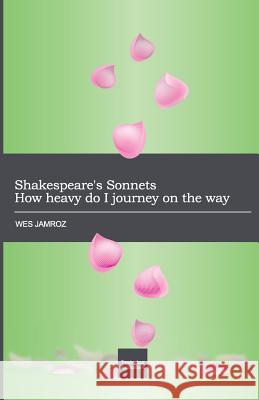Shakespeare's Sonnets: How heavy do I journey on the way » książka
Shakespeare's Sonnets: How heavy do I journey on the way
ISBN-13: 9780986967399 / Angielski / Miękka / 2014 / 426 str.
The Sonnets contain a unique record of Shakespeare's experiences, which led him to become one of the world's greatest dramatist and poet. The interesting thing is that Shakespeare was taught why to write, how to write, when to write, and what to write about. According to the information provided in the Sonnets, at the beginning of his career, Shakespeare met his spiritual Guide. It was his Guide who pointed out to Shakespeare that he was wasting his time and talent on useless activities and meaningless writings. Then his Guide led Shakespeare through a sequence of experiences that allowed the poet to start to perceive the true value of his talent and the way in which his talent could be of use to a greater purpose. The Sonnets are a record of the interactions between the poet and his Guide. In other words, there are two voices in the Sonnets. First we hear the Guide who appeals to the poet's conscience by pointing out how wasteful his life and his writing are. Then we hear the poet's reaction to the Guide's appeal. What follows are exchanges of arguments between the two men. Then we witness how the poet's intuition and his perception gradually develop and expand. Although both the poet and his Guide are presented as young and handsome men, there is a distinct difference between them. The Guide speaks with authority and understanding; he is confident and his counsels follow a precise developmental methodology. The poet, on the other hand, is unsteady, immature, and moody; his reactions change quickly from highly enthusiastic to deeply depressed. The Sonnets, like Shakespeare's plays, form a coherent narrative. "How heavy do I journey on the way" elicits the narrative, which describes the sequence of experiences that led the poet to the development of his poetic inspiration.











